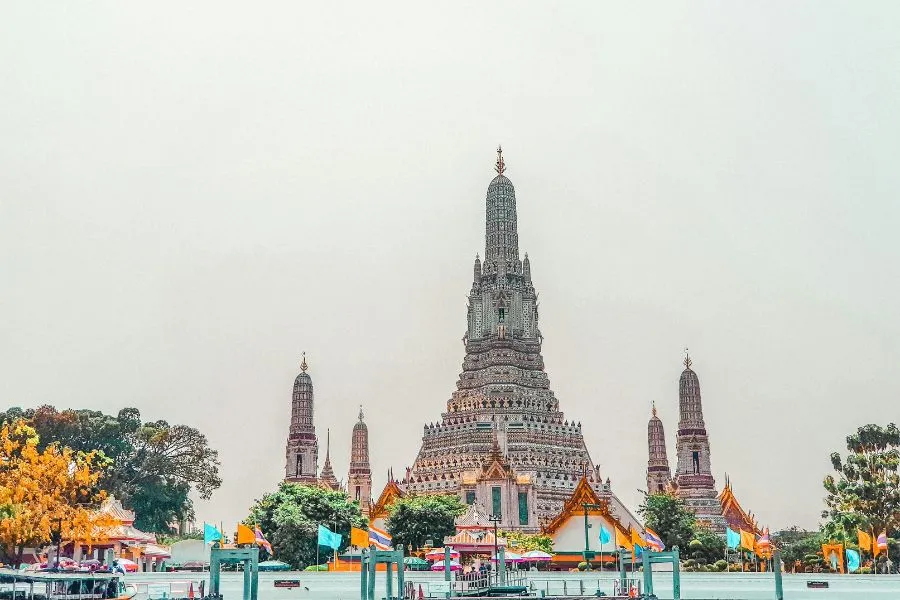Thailand’s bustling cities, tropical landscapes, and thriving job market make it one of Southeast Asia’s most attractive destinations for foreign professionals. Whether you’re working in Bangkok’s tech scene, managing a resort in Phuket, or teaching English in Chiang Mai, many expats start their Thai journey with a work visa, but the big question is, can it eventually lead to permanent residency (PR)?
The short answer: Yes, but it’s a long and selective process. Let’s explore how working in Thailand can eventually pave the way to calling it your permanent home.
Key Takeaways
How the Work Visa System Works in Thailand
To legally work in Thailand, foreigners must hold both a Non-Immigrant B Visa (Business Visa) and a Work Permit. These two documents go hand-in-hand: the visa allows entry for employment purposes, while the work permit grants the right to work under Thai labor laws.
Most applicants begin with the Non-Immigrant B Visa, which is initially valid for 90 days. Once in Thailand, your employer helps convert it into a one-year renewable visa, tied to your job contract and company status. Each year, you’ll need to renew both the visa and the work permit and maintain continuous employment to stay eligible for longer-term benefits.
See How Your Thailand Work Visa Could Lead to PR.
We connect you with trusted immigration experts who simplify the entire process — from paperwork to approval.
Thailand also offers other visa types that can transition into permanent residency over time, such as:
- SMART Visa: For investors, entrepreneurs, executives, and highly skilled professionals in targeted industries.
- Non-Immigrant O Visa: For dependents or family members of work visa holders.
- Long-Term Resident (LTR) Visa: A newer option aimed at professionals, remote workers, and investors offering up to 10 years of residence.
While most foreigners begin with the standard Non-Immigrant B route, staying legally employed and renewing your visa consistently is the first step toward permanent residency.
The Pathway to Permanent Residency in Thailand
Thailand does allow foreign nationals to apply for Permanent Residency (PR), but the process is famously selective and caps annually only about 100 PR spots per nationality per year.
Also Read: How to Get Permanent Residency in the United States (Green Card Guide for 2026)
To qualify, you must have:
- Lived in Thailand on a non-immigrant visa for at least 3 consecutive years, and
- Held work permits during that entire period.
The PR application process typically opens once a year (often around November–December), and applicants must apply through the Immigration Bureau in Bangkok.
Beyond the three-year continuous stay, your application will be evaluated on several factors, including income, tax records, job position, Thai language ability, and contribution to society or the economy.
Eligibility for Permanent Residency in Thailand
Thailand’s PR system is structured around five main categories. You’ll need to fit into one of these to apply:
- Employment Category – For professionals or employees who have been working in Thailand for at least 3 years and earning a stable income.
- Investment Category – For those who have invested at least 10 million THB (around USD 270,000) in Thailand.
- Humanitarian Category – For those married to a Thai citizen or supporting a Thai child.
- Academic Category – For experts and researchers in fields beneficial to the country.
- Other Special Cases – As approved by Thai immigration authorities.
To qualify under the employment route, which is most common for foreign workers, you must show:

- A work permit valid for 3 consecutive years.
- A minimum annual income of 80,000 THB per month (or 40,000 THB if married to a Thai citizen).
- Personal tax receipts for at least the last 3 years.
- A clean criminal record and proof of good conduct.
Knowledge of the Thai language, both spoken and written, is also a major advantage and often considered a soft requirement during interviews.
Benefits of Getting a PR in Thailand
Obtaining PR in Thailand comes with significant advantages that go beyond not having to renew your visa every year. Some of the biggest perks include:
- No need for annual visa extensions or re-entry permits. Once you have a PR, you can live in Thailand indefinitely.
- Freedom to work without needing a separate work permit. You can also become a director of a Thai company more easily.
- Easier access to property ownership. While foreigners can’t own land directly, PR holders can get long-term lease agreements more easily.
- Eligibility to apply for Thai citizenship after holding PR status for at least 10 years.
- Family benefits. Your spouse and children can also apply for PR, creating long-term stability for your household.
Also Read: How to Get Permanent Residency in Poland: A Step-by-Step Guide for Students, Workers & Spouses
In short, PR transforms your status from “temporary resident” to a semi-permanent local, unlocking far greater flexibility and security.
Challenges and Key Points to Note
While Thailand’s PR offers great benefits, it’s not an easy path. Here are some challenges to keep in mind:
- Quota restrictions: Only a few hundred applicants per nationality are accepted annually.
- Complex paperwork: From tax documents to employment certifications, missing a single requirement can delay your case.
- High competition: Preference is often given to long-term contributors, those who pay taxes, employ Thais, or have strong economic ties.
- Language proficiency: Although not officially mandatory, being able to communicate in Thai can strongly influence your interview success.
- Slow processing: PR decisions can take 12–18 months, and there’s no guarantee of acceptance even with perfect credentials.
However, maintaining consistent legal residence and a stable professional record significantly improves your chances.
Final Take
Yes, you can get permanent residency in Thailand through a work visa, but it’s a test of patience, consistency, and integration. The key lies in maintaining steady employment, paying taxes regularly, and showing a genuine commitment to Thai society.
For many expats, Thailand’s charm isn’t just in its beaches or food; it’s the balance between professional opportunity and cultural depth. Earning your PR here is like being accepted into that rhythm permanently, where your life and work become part of the Thai story.
Reference: https://www.thaiembassy.com/thailand-visa/permanent-residence-thailand





